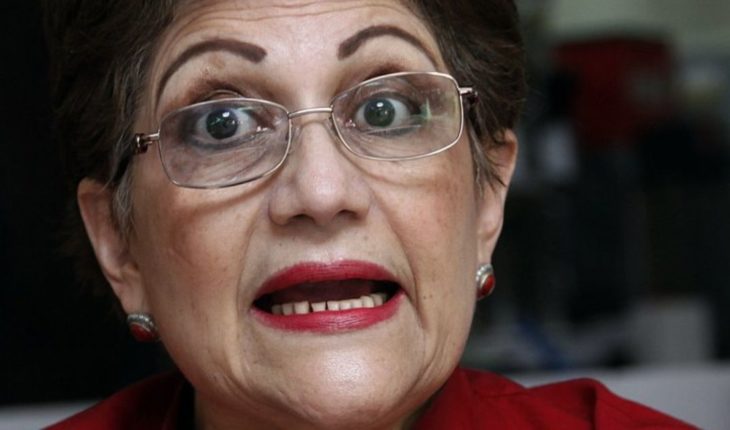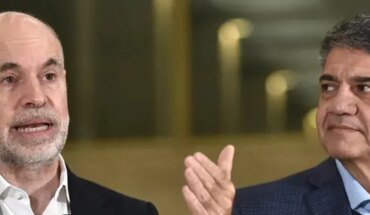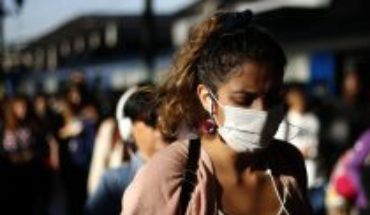TEGUCIGALPA (AP) – days before the elections in Honduras in 2017, a former senior official of the national police, María Luisa Borjas, gave a press conference in which read reports of investi indemnity of the Government on three high-profile murders. Now, as a legislator of the opposition, faces a possible fine and the loss of his seat in Congress in the trial that starts Monday against defamation. His alleged crime was to give names _ those of so-called “intellectual authors” of a murder in one of those reports included _ in a country where power has enjoyed a long impunity. For years, international organizations criticized Honduras and other Latin American Nations on the criminal charges of defamation, which are considered powerful tools that allow to elites _ often the lawmakers themselves _ silence to their critics. Borjas has a long history of complaints against corruption, starting with the ranks of the police when it ran the internal affairs unit.
“It is a political persecution and they want to set a precedent so that nobody dares to denounce absolutely nothing here,” said Borjas. “People say ‘well, if they do this against a member, what they can not do with me?’.”
In another separate case, the Supreme Court refused earlier this month to return to judge the journalist David Romero, who openly criticized President Juan Orlando Hernández. The judges ratified a sentence of 10 years in prison to Romero in 2016 after being sentenced on various charges of libel for their reports on the spouse of a former Attorney general. The Honduran Constitution guarantees the right to the honour of their citizens, and libel is considered an offence against honour. The Committee for free expression, based in Honduras, identified 41 criminal cases related to crimes of honour since 2003, of whom 13 were against journalists. This month, the group said that “the mere existence of these crimes, and the issuance of judgment with disproportionate penalties, have the effect of intimidation and self-censorship on the free exercise of freedom of expression”. The Committee requested the decriminalization of these acts, especially when a so-called comment or defamatory report is of general interest. In the case of Borjas, Camilo Atala, President of the banco Ficohsa, was who filed the complaint. His was one of the 16 names appearing in one of the documents read by the legislator: a report from the inspector general of the Ministry of security with the alleged conspirators in the killing of the environmental activist Berta Cáceres in 2016. The document said that the suspects were identified on the basis of the evidence collected, including wiretaps and recovered e-mails, but did not enter into detail about the alleged role of Atala.En November, a court found seven persons guilty of participating in the murder of Cáceres, but his family still claiming that justice is done with those responsible for his death. Borjas said that he read the reports to journalists that day because I knew that they were in the hands of the prosecutors, who had not acted on the matter. Furthermore, the same day submitted a complaint to the national human rights Commission. Atala’s complaint alleges that Borjas comments “customers of the Bank directly affect its trade relations with its national partners and foreign, so also”. The document points out in addition that the statements “have caused irreparable damage to the honour, reputation and dignity” of the banker. Luis Padilla, the lawyer who filed the suit, said initially that he would speak with a reporter about the case, but phoned in the agreed time, he refused to do so. The lawyer responded with a same loop recording to the various questions of the journalist.
Padilla agreed later to pass a message to Atala asking for reviews, but there was no response.
The last January, representatives from Atala volunteered to withdraw the demand if Borjas is publicly retract his statement, something to which she refused. His lawyer, Kenya Oliva, said that there is still having a chance of reaching an agreement, but Atala’s request to remove his words still stands. With a single charge against defamation, Borjas said it does not expect a prison sentence if she is found guilty, but if a fine. In addition to a possible attempt to expel it from Congress following the conviction. The Inter-American Commission on human rights criticized the use of such cases by the power saying that “(if) we consider the consequences of criminal sanctions and the inevitably inhibitory effect to the freedom of expression, the” penalty of any kind of expression can be applied only in exceptional circumstances where there is a clear and direct threat of lawless violence”. In his press conference of November 22, 2017, Borjas told reporters that in Honduras the most serious crime is to report the Commission of one. “In this country crime is denounced, is not murder, is not trafficking drugs, weapons, is not assault”, said. In this note:





